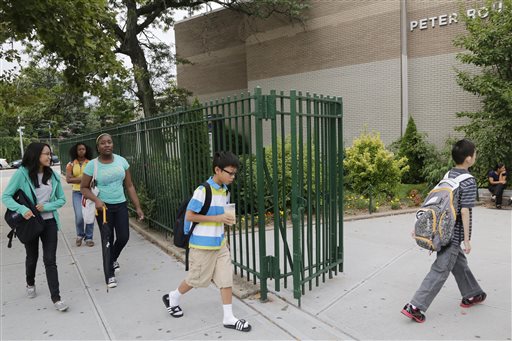Some charter schools promise parents a better education for their children, but new data compiled by the Texas Education Agency (TEA) suggests those promises may be nothing more than smoke and mirrors when it comes to graduation.
Videos by Rare
Based on the numbers, graduation rates for Texas charter schools are almost 30 percentage points lower than the rates for traditional public schools.
RELATED: Houston charter school’s spending of tax dollars sets off alarm bells
Texas Public Radio reports the TEA found only 62 percent of charter schools students graduate on time, compared with 90 percent of traditional public school students.
While some may find the TEA numbers are shocking, parents may never see those figures, given accountability rules for charter schools differ in their reporting requirements compared to those for traditional public schools.
For instance, charter schools can rate themselves using alternative standards beyond graduation rates, and they can exclude certain students from their stats – including those who didn’t graduate.
Furthermore, by law, charter schools can request they be rated under alternative standards if most of their students are considered high risk – a measure not afforded traditional public schools.
The TEA data shows approximately 22 percent of charter schools are rated under said alternatives.
Since both charter and public schools usually enroll roughly the same percentage of high-risk students, based on further TEA data, some Houstonians say the numbers are alarming.
As Texas families look for the best educational opportunities for their children, making sense of the numbers may be difficult, but this is where advocacy groups can step in to help.
San Antonio-based research and advocacy group Intercultural Development Research Association (IDRA) is reportedly working to highlight the issue of low-performing charter schools:
“A 90 percent versus a 62 percent graduation rate — it’s huge. That’s incredible because charter schools are seen as these kind of rescue schools,” IDRA program director David Hinojosa said in an interview. “Yet, then, when you look at the outcomes for these charter schools and this diversion of resources towards charter schools, they’re not paying off.”
RELATED: Texas family warns of risks after family member’s dogs attack son
While the group doesn’t offer an answer or definitive explanation for the charter school graduation anomalies, IDRA officials said there are needed improvements in the current system, which they suggest allows students to fall through the cracks:
“Those students who don’t graduate (regardless of their circumstances) don’t get a diploma,” Hinojosa further said on Texas Public Radio. “And, if they don’t get a diploma, then their life outcomes will likely show depressed wages, depressed tax contributions, increased chance of relying on state and federal services.”



